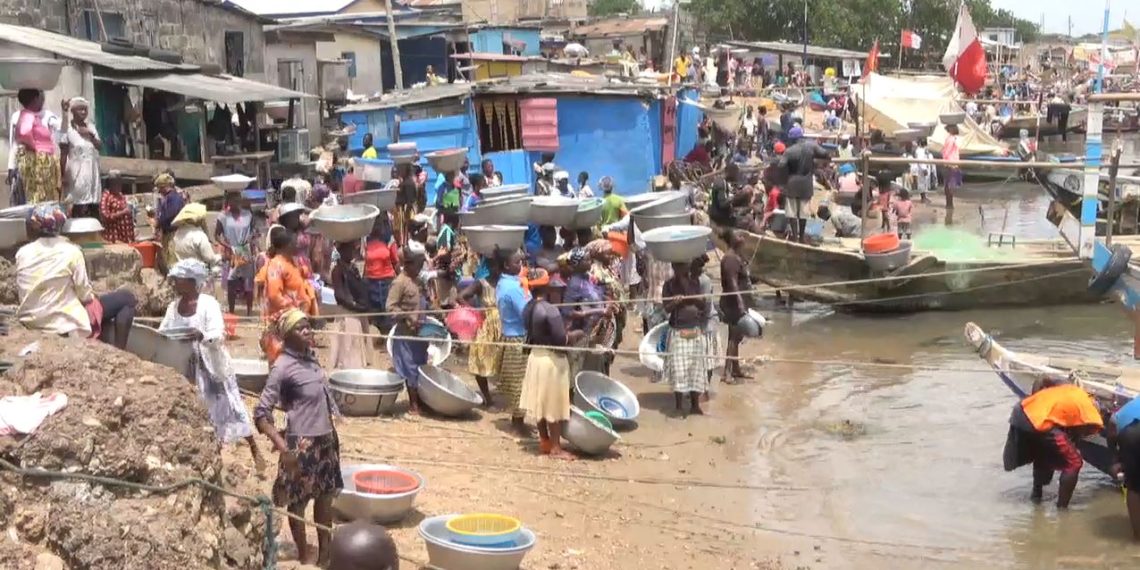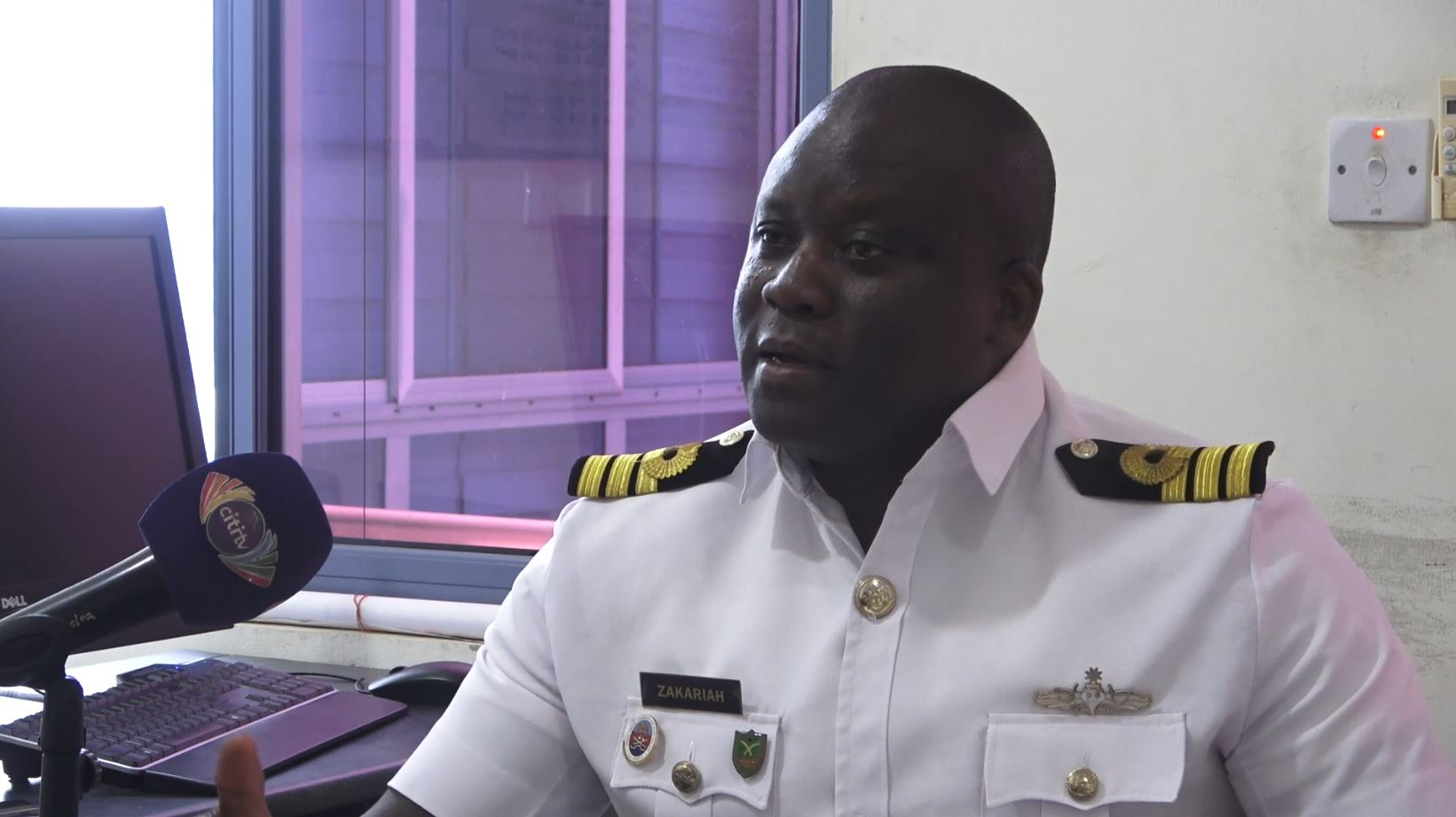Climate Change & Energy
Unpunished illegal fishing activities in the wake of Ghana’s dwindling fish stock
Source: Citinewsroom - May 25, 2023

Fish, be it smoked, grilled, or dried is a source of protein to Ghanaian households, and any change in its price and availability impacts the nutritional needs of Ghanaians, particularly, the majority who earn a minimum wage of GH¢14.88.
Notably, sardinellas are an affordable source of nutrition, and many fishers rely on their catch for their income; coastal communities in Ghana also benefit from the processing and trading of these fish.
The Western Gulf of Guinea, spanning from Cote d’Ivoire to the Republic of Benin, hosts two species of sardinella: the round sardinella (Sardinella aurita) and the flat sardinella (Sardinella maderensis). These are the sole sardinella species in the Ghanaian marine ecosystem.
Data from the Fisheries Commission shows a marginal decline in fish stock with a severe case of endangered small pelagic fishes notably Round Sardinella known as Eban or Kankama; Flat Sardinella also known as Antar or Antebu; Chub Mackerel also known as Saman, and Anchovy popularly known as Keta School Boys.
Between 2011 and 2021, the Round Sardinella also known as Eban or Kankama had its highest record of 52,504.000 metric tons in 2020, but woefully recorded 17,304 metric tons in 2021.
The Flat Sardinella as Antar or Antebo with a highest record of 10,718.89 in 2011 had its lowest in 2017 with a record of 4,145.31 metric tons.
The Chub Mackerel also known as Saman, with its highest in 2011 with a record of 17,701, had the lowest 1,389 metric tons in 2021.
Anchovy known as Keta School Boys in the Ghanaian community had a highest of 63,519.00 metric tons in 2021 with a lowest in 2017 with 38409.20 metric tons.
At the shores of Gomoa Nyanyano in the Central Region, Elizabeth Baffour, a woman in her mid-60s is seated under the shade of some trees, waiting to buy some fish. Explaining the impact of a decline in fish catch, she bemoaned that fish processing has been low and almost come to a stop due to unavailable fish to preserve.
“Our main occupation is being a fishmonger. Mostly, at this time of the day [about 14:00 GMT] we should have been processing the fresh fish for market; smoking, frying, and drying, but there are no fishes at shore to buy so we are seated here unemployed. When we used to get lots of fish, I can even take some on credit and repay after sales. These days, the fishermen will be at sea for a long time and will not return with a catch”, she said.
Comfort Ackon, another fishmonger, shared her view stating that “We used to get lots of fish but now we are not able to get more fish due to light fishing. Today we had a considerable number of fish since some fishermen didn’t use light in fishing which will have directed the fish away from these men who move into see from this shore in Buduburam. If other fisherfolks use light in fishing, our men won’t get a good catch”.
IUU and European Union’s Sanctions
European Union, Ghana’s leading export destination, has issued various warnings to Ghana on IUU. In 2013, Ghana received its first yellow card from the EU and that was lifted after two years when the government passed new legislation and a clear fisheries management plan, the Marine Fisheries Management Plan [2015 to 2019].
However, that was short-lived with the EU arguing that although Ghana developed well-constructed policies on illegal fishing in 2015, it has not been implemented or enforced, allowing the situation to deteriorate. This led to a second yellow card by the EU in 2021.
A new Marine Fisheries Management Plan [2022 – 2026] has been developed to help Ghana escape from the yellow card sanction and the Board Chairman of the Fisheries Commission, Prof Francis Nunoo shares the roadmap on this and other development.
“The main pillar of the yellow card is the IUU which is continuously going on and the other one is our fisheries act which needs to be updated. So there is a review of the fisheries act currently going on so one of the pillars within the fisheries management plan is to ensure that the fisheries act is also reviewed. So currently there is a committee in place together with our international, and local partners to help review the fisheries act and its regulations applicable. So essentially, all these are ongoing at the same time.”
Ghana’s fishing industry employs over 2.7 million people. In 2021, over US$ 150m was generated from fish exports which is a 75% increase from the year 2020. Don’t be quick to celebrate, because according to the Environmental Justice Foundation, Ghana loses about US$ 100 million annually to illegal, unregulated and underreported fishing activities.
The use of unapproved fishing gears, light fishing, dumping fish into sea, fishing with explosives such as dynamite, and transhipment at sea, popularly called “Saiko” are among the bad fishing practices crippling the fishing industry.
Seated at shore the shade of trees, Joshua Annan a canoe owner in Gomoa Buduburam blames recounts his experience on transhipment and dumping at sea,
“Our biggest problem is the fishing trawlers. They catch various small pelagic fishes and dump them into the sea. Two weeks ago, we were on a fishing expedition in the Elmina and Shama areas, we saw them dumping lots of fish into the sea. They really destroyed lots of them. If I had a smartphone, I would have photographed these and shared it with the authorities to know what these trawlers have been doing in our seas”, he said.
Mr Annan further explained that “the trawlers don’t like small pelagic fishes known locally as ‘logo fish’. With the introduction of Saiko, fisherfolks buy small pelagic fishes from trawlers at sea and sell them to fishmongers at the shore. These trawlers don’t use the approved fishing gear during fishing at sea hence after their catch they sort out their preferred fish. Since we no longer engage in the Saiko business, they dump the small pelagic fishes into the sea which disrupts the marine ecosystem.”
A fisherman, John Tawiah sowing his fishing net under a constructed shed at the shore, complained that light fishing has impacted their work, stating that “we have low fish catch as other fishermen use light in fishing at night”.

John Tawiah, fisherfolk
On the sides of monitoring, control, surveillance and enforcement, the Fisheries Act states that its enforcement unit “the purposes of this Act, Regulations made under it and any other enactment relating to the regulation of fisheries: this includes personnel of the Enforcement Unit, personnel of the Ghana Navy; aircrew and personnel of the Airforce deployed for fishery duties; officers of the Water Research Institute; and fishery officers of the secretariat of the Commission.”
The Ghana Navy reaffirmed its commitment to protecting the blue economy and Ghana’s territorial waters shared insights on its scope of work and its investment to boost its work.
The Deputy Director of Naval Operation, Commander Abu Zakariah, in an interview with Citi News’ shared some reforms and investments made to bolster their work.
“The essence in investing in the Maritime Domain Awareness Tools that we have which gives us a very good picture at sea [what we have to do] is to economize, and to save money. So, by doing that our operational cost has been in a way improved or reduced and we conduct time-on-task or purposeful sailing. So that is actually what we do. So it isn’t that the Ghana navy is blind at sea. No, we are not blind at sea”.
He further stated that, “We [Ghana Navy] have every detail, vessel, and any infractions. You can see that most of the arrests that we have made we collaborate with even most of the international communities; the Interpol, our other partners etc.; we get information from them.”

Abu Zakariah
Prosecution of IUU practices in limbo
Responding to Citi News Daniel Abugre Anyorigya’s Right To Information request on the punitive actions, fines and other forms of punishment taken on IUU activities from 2000 to 2021, the Fisheries Commission recorded 477 offences. Majority of the offences were dumping of fish and transhipment with other cases such as fishing in the Inshore Exclusive Zone, juvenile fish found on board, use of undersized mesh net, and in-proper filling of logbook.
Surprisingly, out of the 477 offences recorded only 61 have been addressed.
Fines imposed on 33 offences have been paid in full and all of them were out-of-court settlements. Only of the 23 offences have not been paid in full. Two offences were granted pardon.
This means over 400 offences have been left unpunished and Ghana continues its battle with bad fishing practices which has plagued the industry affecting the primary source of income for communities, and threatening food security for the nation.
Policy Analyst at iWatch Africa, Gideon Sarpong sharing feedback on this development stated that: “When you look at some of the changes that we would want to see, first of all is the application of fines when vessels are caught engaging in illicit fishing activities, implementation of the law. This is a very crucial point because we have all the laws, but we consistently fail to apply them, and we have a number of cases in the past years where the Fisheries Commission has gone for out-of-court, and they have fined these vessels significantly lower than the $1m fine that is supposed to be imposed when caught engaged in IUU practices.”
Mr. Sarpong further added that “We also look at transparency. I am referring to the transparency by the Fisheries Commission and the Ministry of Fisheries and Aquaculture Development. an example could be the publication of out-of-court settlement whenever these things happen.”
Attempts to get the Fisheries Commission to provide insights on why 400 offences have not been prosecuted and most of the fines being out-of-court settlements have failed.
 John Tawiah, fisherfolk
John Tawiah, fisherfolk
 Abu Zakariah
Abu Zakariah



